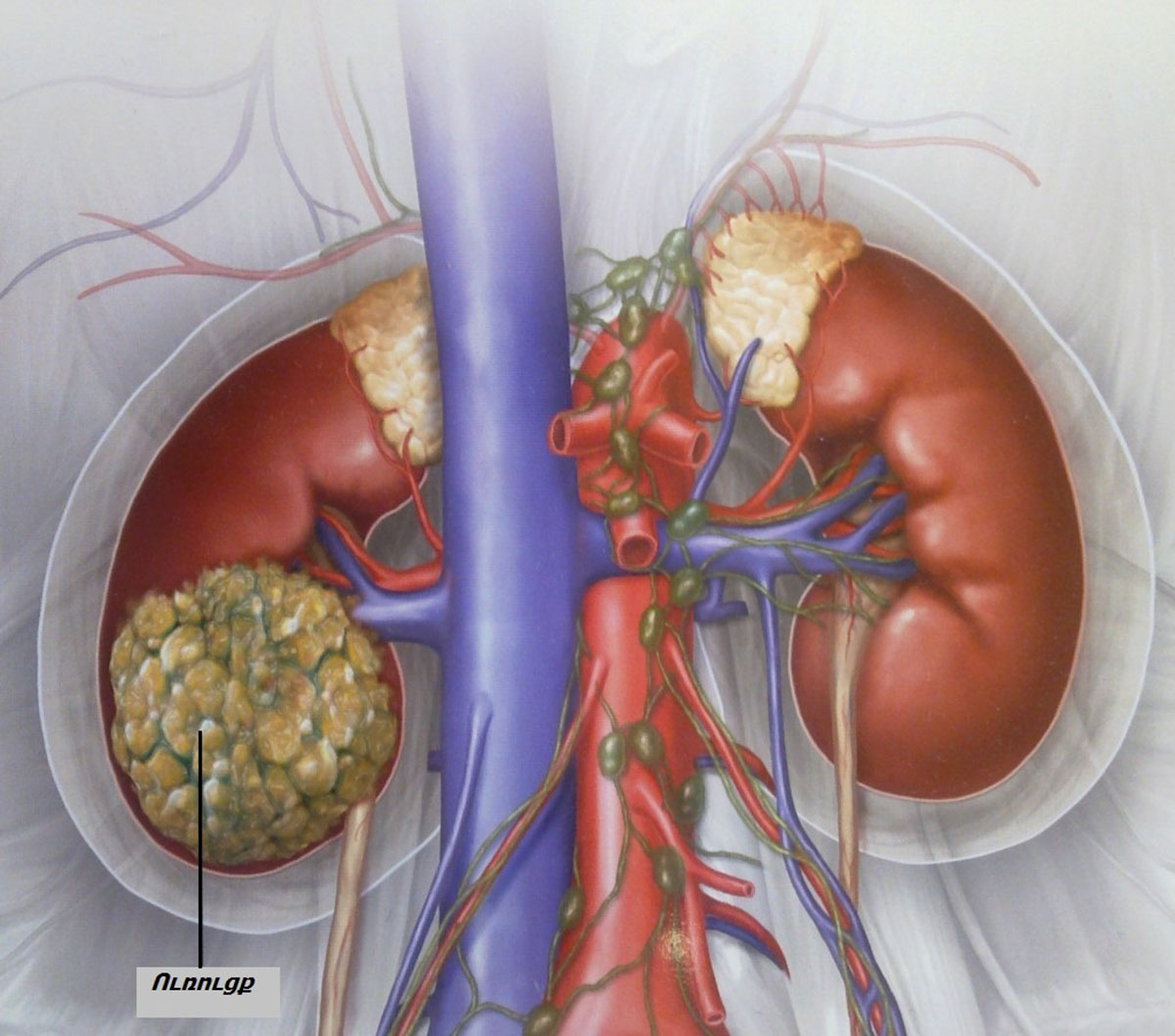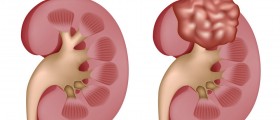
In most cases kidney cancer is treated with surgery. Depending on the stage of the cancer the surgeon may remove just a part of the kidney, entire kidney, or entire kidney with the surrounding tissue. In some cases the adrenal gland and lymph nodes near the kidneys must be removed.
Nepherectomy is a term which refers to removal of the entire kidney, the adrenal gland the surrounding fatty tissue and lymph nodes close to the kidney. The procedure is performed under general anesthesia. One large cut can be made on the abdomen or on the back. This procedure can be done using the laparascope. In laparascopic nepherectomy a few small cuts are made on the skin. Through the holes, the surgeon slides a tube-like medical instrument with a tiny camera attached at the end. This medical instrument is called a laparascope. It is also connected to the monitor so the surgeon can see the inside of your abdomen. The surgeon will remove the cancer through one of the cuts. This procedure requires shorter duration of hospitalization and quicker recovery.
As far as removal of the lymph nodes are concerned, there are some disagreements among doctors. Some of them think that by removing the lymph nodes near the kidney, the chances of the cancer to return are decreased. In addition some doctors find that tests and diagnostic procedures do not reveal the presence of the cancer in the lymph nodes so it is better to remove them together with the kidney. On the other hand some doctors consider removing the lymph nodes unnecessary. The similar disagreements exist concerning the adrenal gland.
If only a part of the kidney is affected with cancer and the doctor will remove just that part. This procedure is called partial nepherectomy. It is usually performed using the laparascope and making several tiny cuts, but it can also be done with one large cut. The advantage of this procedure, however it is performed, is that the kidney can still function.
In cases of metastasis when the cancer has spread to the other organs such as liver, bones, lungs or brain, surgical procedure will be determined according to the affected organs. Such surgeries may help the patient with the symptoms and pain.Every surgical procedure carries certain risks of complications and so does nepherectomy. The complications may include kidney failure, internal bleeding, damage of the nearby organs such as pancreas, bowel or spleen, pneumothorax and infection of the wound.
















Your thoughts on this
Loading...